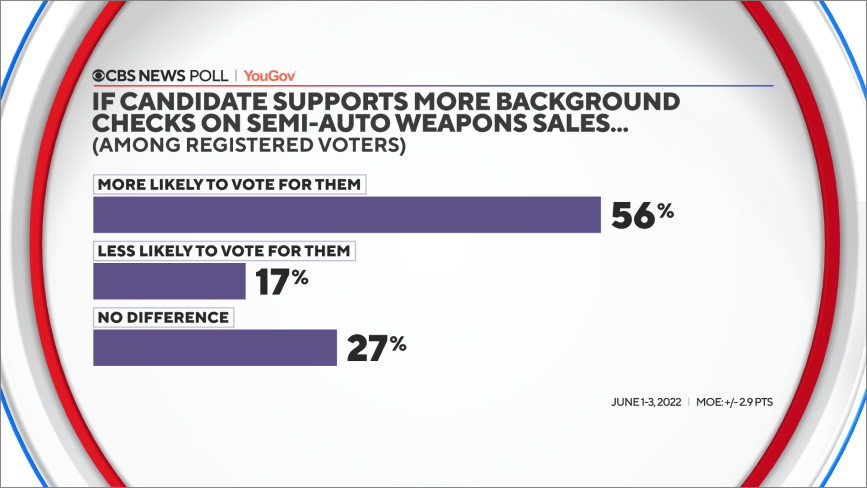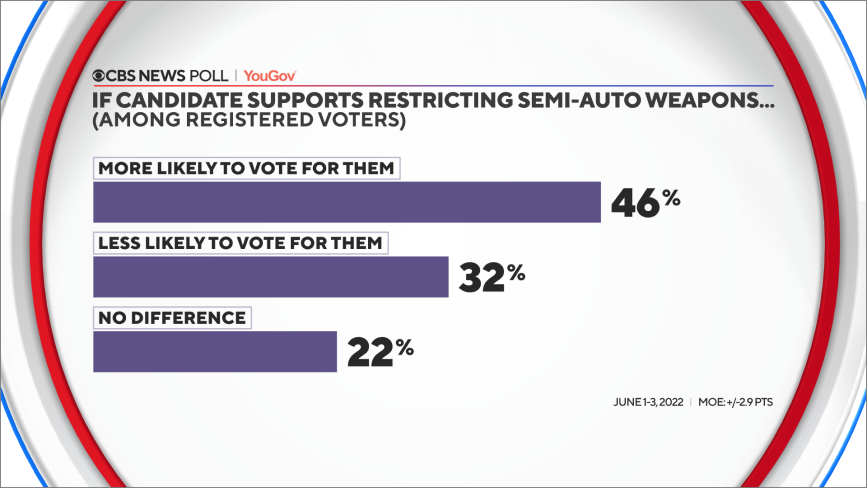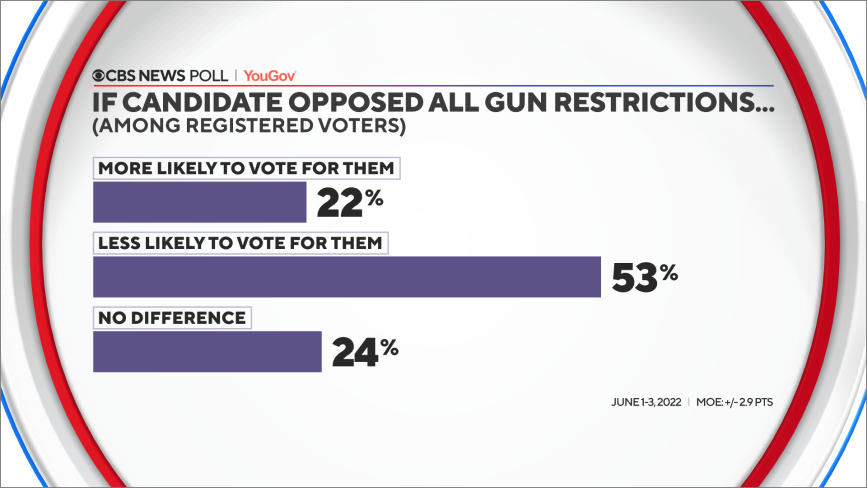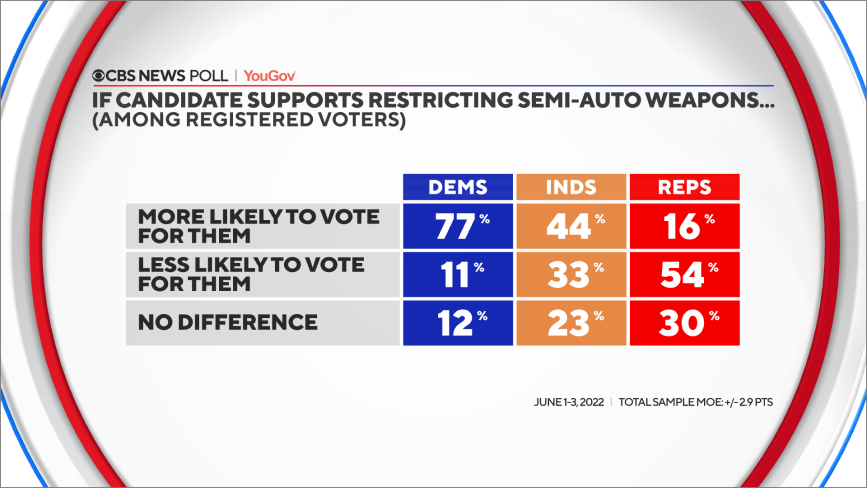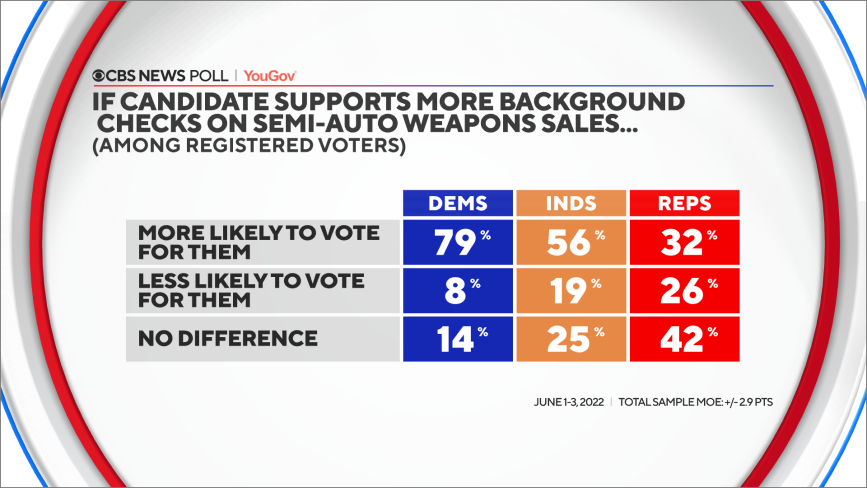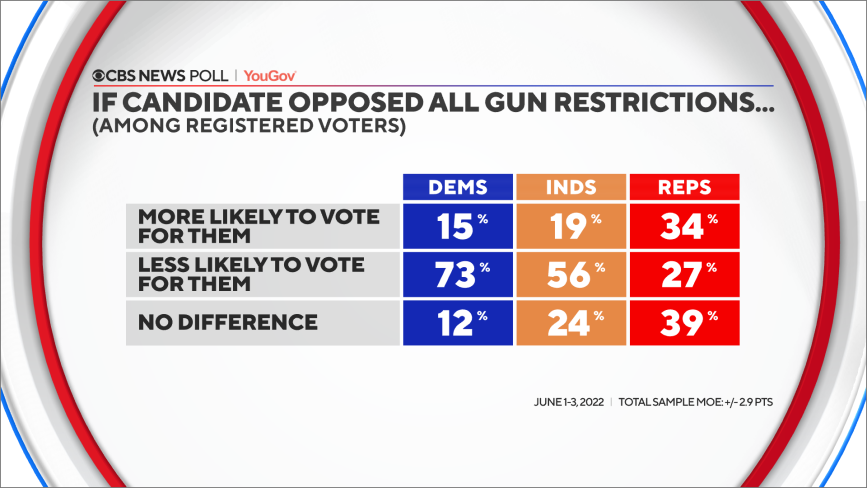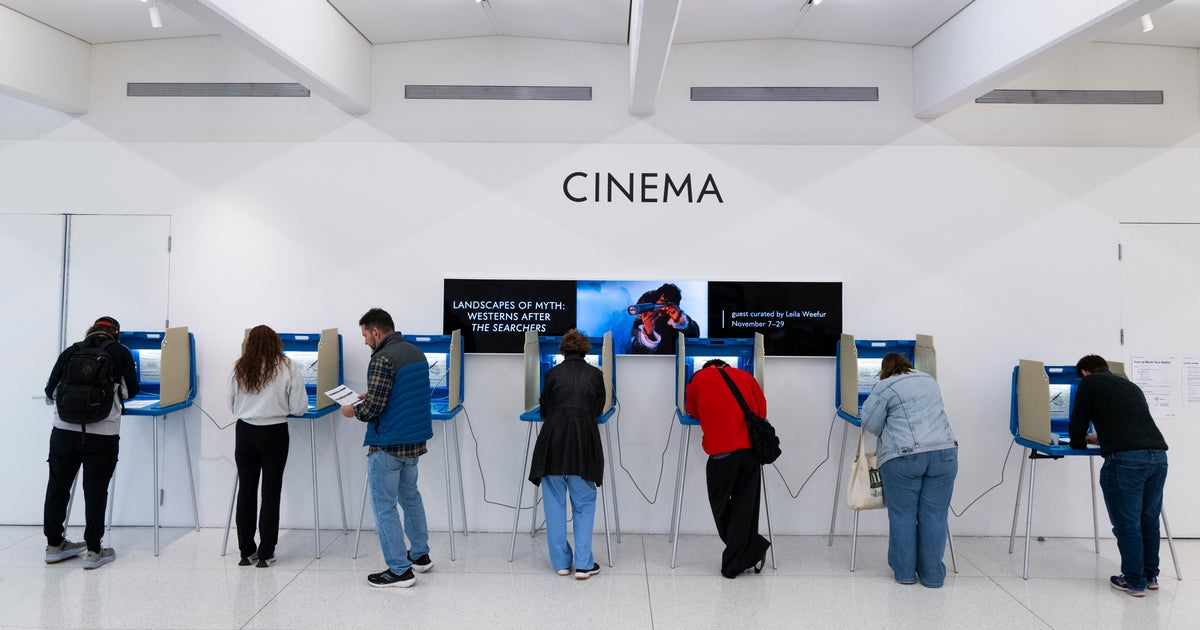A candidate's position on gun control laws matters, but for Democrats more than Republicans - CBS News poll
For many voters, issues related to gun laws will play a factor in which candidates and officials they support in upcoming elections, but the issue is more of a factor for Democrats than Republicans — even among Republican voters who say they always vote in Republican primaries.
Americans overall support both a ban on the AR-15 semi-automatic weapon and increasing background checks and restrictions when it comes to purchasing such weapons, and that support is reflected in how most Americans would consider the issue when casting their votes. Overall, most voters would be more likely to vote for a candidate who supported more background checks on semi-automatic weapons, and a plurality would be more likely to vote for a candidate who would support a law restricting weapons like the AR-15. Conversely, most voters would be less likely to support a candidate who generally opposed all gun restrictions.
Republican and Democratic voters tend to be on opposite sides of the debate on the issue of guns in America, but the issue seems to weigh more heavily on Democrats when it comes to voting. While Democrats are particularly energized when considering how the issue of guns would influence their votes, Republicans tend to be less likely than Democrats to say a candidate's stance on gun policies would affect their vote.
For instance, a large majority of Republicans oppose a law restricting the AR-15 semi-automatic weapon, and most Republican voters would be less likely to vote for a candidate who supported such restrictions. Still, the percentage who say so is just over half, compared to three in four Democrats who would be more likely to vote for a candidate who supported restricting the AR-15. For three in 10 Republican voters, the issue would make no difference. This is true of just 12% of Democratic voters.
Republicans tend to be more in line with Democrats and independents when it comes to increasing restrictions on who can purchase guns, including more background checks or "red flag" laws, and this, too, is reflected in their voting preferences: Republicans are slightly more likely to vote for a candidate who supports adding background checks and requirements than opposes such measures. But here again, four in 10 Republicans say it would make no difference in their vote, compared to just 14% of Democrats.
And if a candidate staked out a position in opposition to all gun restrictions, 73% of Democratic voters would be less likely to vote for them. For Republican voters, the impact is far less clear: though more would be more inclined than less inclined to vote for such a candidate, four in 10 Republican voters say it wouldn't change their voting decision.
While a slightly larger percentage of very conservative Republican voters (40%) and those who live in gun-owning households (37%) say they would be more likely to vote for a candidate who opposed all gun restrictions, this percentage still amounts to less than half among both of these groups. And just 34% of Republicans who say they always vote in Republican primaries would be more likely to vote for such a candidate — the same percentage as Republican voters overall.
The same isn't true of Democratic voters: Democrats who say they always vote in Democratic primaries are are considerably more likely than those who don't to say they would be more inclined to vote someone who supports restricting weapons like the AR-15 and more restrictions on buying semi-automatic weapons, and more likely to vote against a candidate who opposed any gun restrictions.
This CBS News/YouGov survey was conducted with a nationally representative sample of 2,021 U.S. adult residents interviewed between June 1-3, 2022. The sample was weighted according to gender, age, race, and education based on the U.S. Census American Community Survey and Current Population Survey, as well as to 2020 presidential vote. The margin of error is ±2.6 points.
